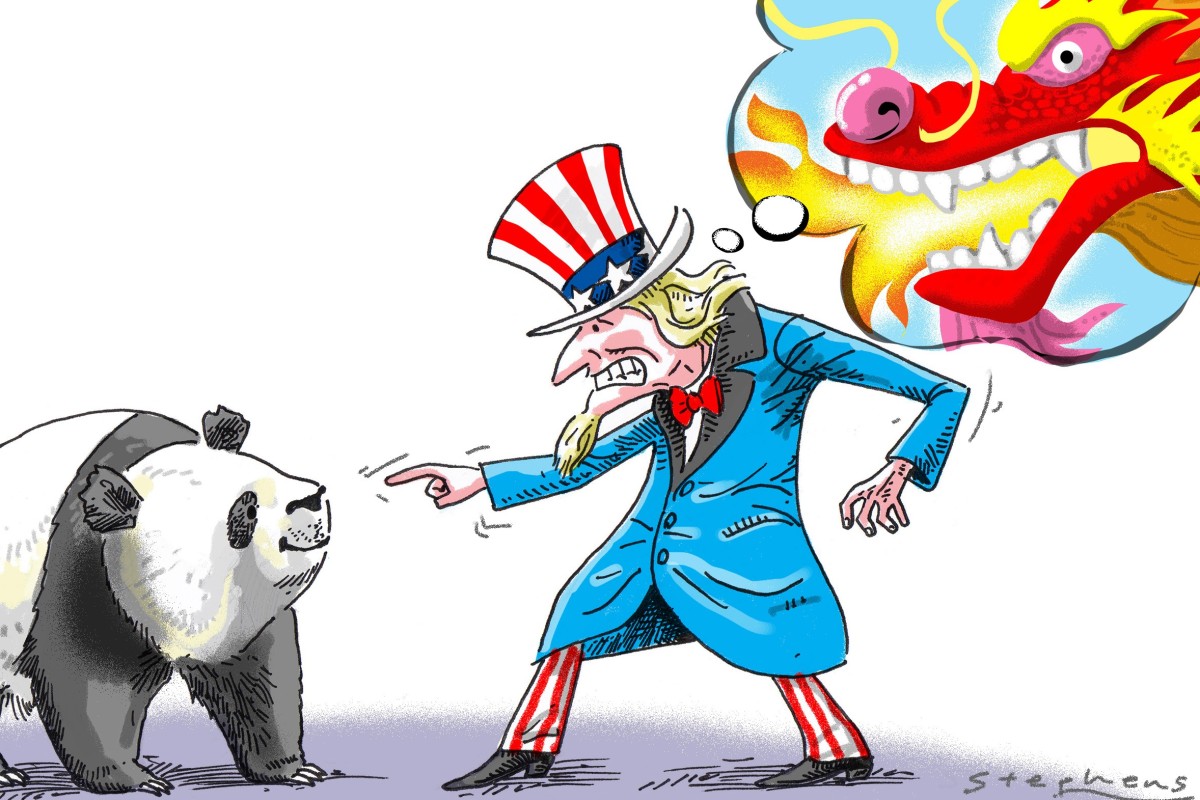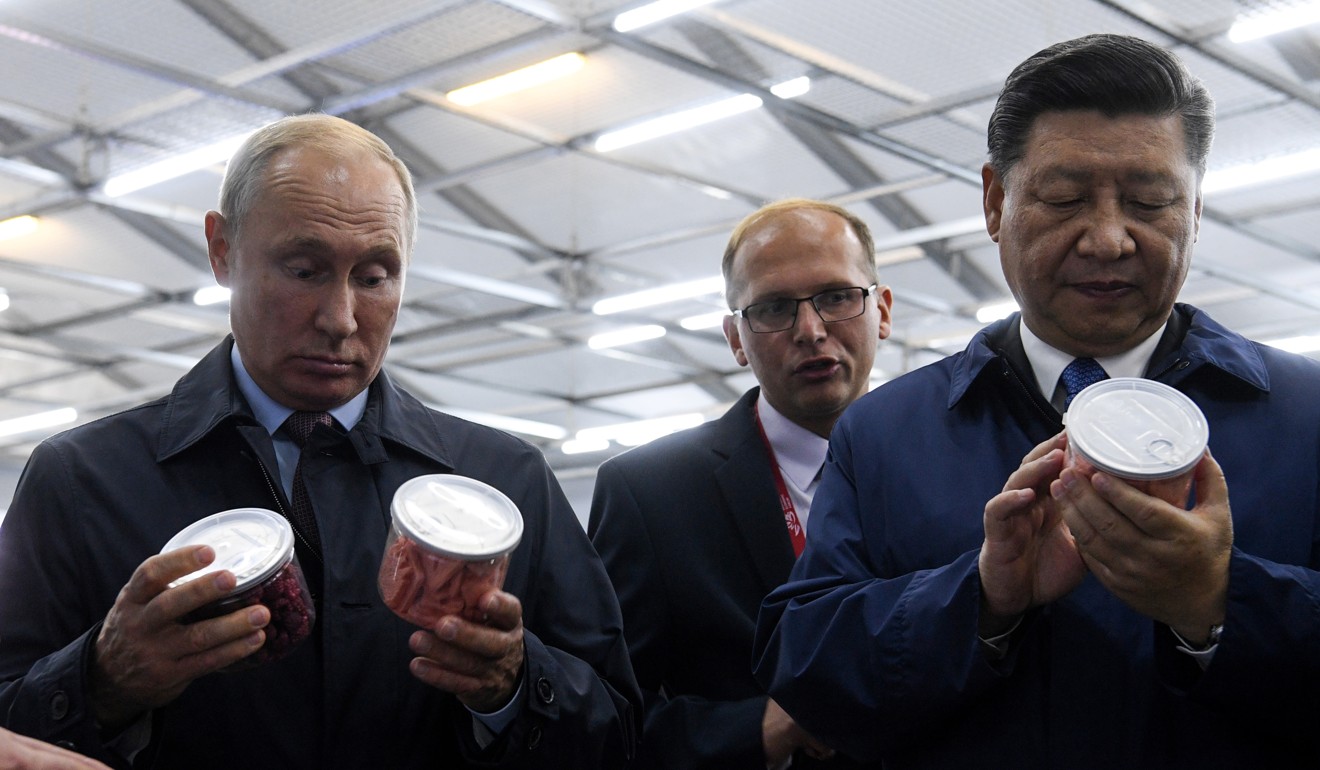Tom Plate
 In the coming month, look for broad gripes and bright anti-red stars over the land of the free and the home of the brave. For starters, the Committee on the Present Danger: China begins its anti-communist show in the US capital this week. The self-appointed panel includes not only former defence and intelligence officials, some barely disguised frontmen for the US military-industrial complex, but also political personalities of the more entertaining kind, such as Republican Newt Gingrich, a former House speaker and once-college professor who is as colourful as he is sometimes unbalanced.
In the coming month, look for broad gripes and bright anti-red stars over the land of the free and the home of the brave. For starters, the Committee on the Present Danger: China begins its anti-communist show in the US capital this week. The self-appointed panel includes not only former defence and intelligence officials, some barely disguised frontmen for the US military-industrial complex, but also political personalities of the more entertaining kind, such as Republican Newt Gingrich, a former House speaker and once-college professor who is as colourful as he is sometimes unbalanced.
Even so, the propaganda attack against “the PRC’s ominous trajectory” – the committee’s phrase – is well timed. Sino-US relations, which have never been light and lively, are a downright downer these days. Right now, there is more civility in an angry Hong Kong couple pacing back and forth in a 200 square foot flat than in the Beijing-Washington odd couple.
Firing up issues that include the South China Sea and trade negotiations, the committee will have no trouble finding material to engage in its perilous fight. The committee says it aims “to help defend America through public education and advocacy against the full array of conventional and non-conventional dangers posed by the People’s Republic of China. As with the Soviet Union in the past, Communist China represents an existential and ideological threat to the United States and to the idea of freedom – one that requires a new American consensus regarding the policies and priorities required to defeat this threat.”
This prospect is chilling. Recall previous “red scares” in Washington. We suffered through the notorious McCarthy era of 1950-54 that proposed to expose severe Soviet infiltration in the government although, in the end, few communists were found. Then, in the late 1990s, a Republican-controlled Select Congressional Committee sought to discredit the Democratic administration of president Bill Clinton for being “soft” on China.
Its final 1999 report, titled “The Select Committee on US National Security and Military/Commercial Concerns with the People's Republic of China”, made allegations of Chinese spying in the US. Picked apart by many experts that looked at it carefully, the report garnered little traction politically. But here we are, 10 years later – if one doesn’t succeed at first, cry and cry again.
So I ordered a martini at a Los Angeles bar for my favourite “former” US intelligence official and asked what we sane Americans are to make of the latest red scare. “I think it’s threat-mongering,” he said, very carefully, adding, “Which isn't helpful … If everything China does is a threat, then nothing is.”
No panda-hugger, though, this savvy official warns against smug complacency about Beijing’s aspirations, which are not necessarily those of the US, or, in many instances, those of China’s Pacific neighbours. “I'm still seeking some steadiness in my own view,” he admitted. China, he emphasised, is complicated. Tell me about it.
But doesn’t everyone just know, as does the Committee on the Present Danger, that China’s long-range objective is total world domination? Of course, how this will be achieved and/or when it will become the global destiny is not at all clear. Yet there always seems to be “certainty” when communist China is blithely equated with the former Soviet Union, the communist superpower whose existence as an empire was, for so many years, an indisputable pain of geopolitical life. So if the Soviet Union was expansionist, China is or will be too.

Russian President Vladimir Putin and his Chinese counterpart Xi Jinping inspect freeze-dried fruit and vegetables while visiting a start-up pavilion at the Far East Street exhibition on the sidelines of the Eastern Economic Forum in Vladivostok on September 11, 2018.
Is it that simple? Actually, it is not. If anyone inside the Chinese government or the Communist Party is seriously thinking of world domination, his head needs to be examined. Ask the British or any elderly Soviet communist. World domination is a tough gig. Throughout history, empires have risen and fallen on the conceit that they did not have enough and needed more – territory, space, religious converts.
World domination wouldn’t be so hard, one supposes, as long as the world is more or less comfortable with being dominated. But, with so many of its own people to house, feed, educate and otherwise keep loyal, China has a great deal of work to do within its borders before the People’s Liberation Army gets locked and loaded for stirring marches into Montenegro, Monaco and Minneapolis on its world domination tour.
No doubt, China will aim to dominate transnational economic sectors it views as central to its survival, such as energy, commodities and especially technology. It will beg, borrow, steal and, if necessary invent, every last piece of the technology it needs. Perhaps, in this sense, we can agree that its DNA might someday hover over the globe, along with that of others.
But the world has changed greatly since the heyday of the Middle Kingdom. The good days of old are long past and they won’t be anything like the good days ahead.
The Chinese elite, at least, must know that. Over a recent dinner in Hong Kong, trying hard to keep a straight face, I asked a former foreign minister from Asia, well respected by Chinese as well as American diplomats of all stripes, about China’s campaign of world conquest. A short pause, then we both laughed, saying as if one: “China is not stupid enough to try.” World domination is a crown that weighs heavily on headquarters. Just ask the British, the French, the Turks or even Americans for that matter – perhaps especially us Americans.
No comments:
Post a Comment